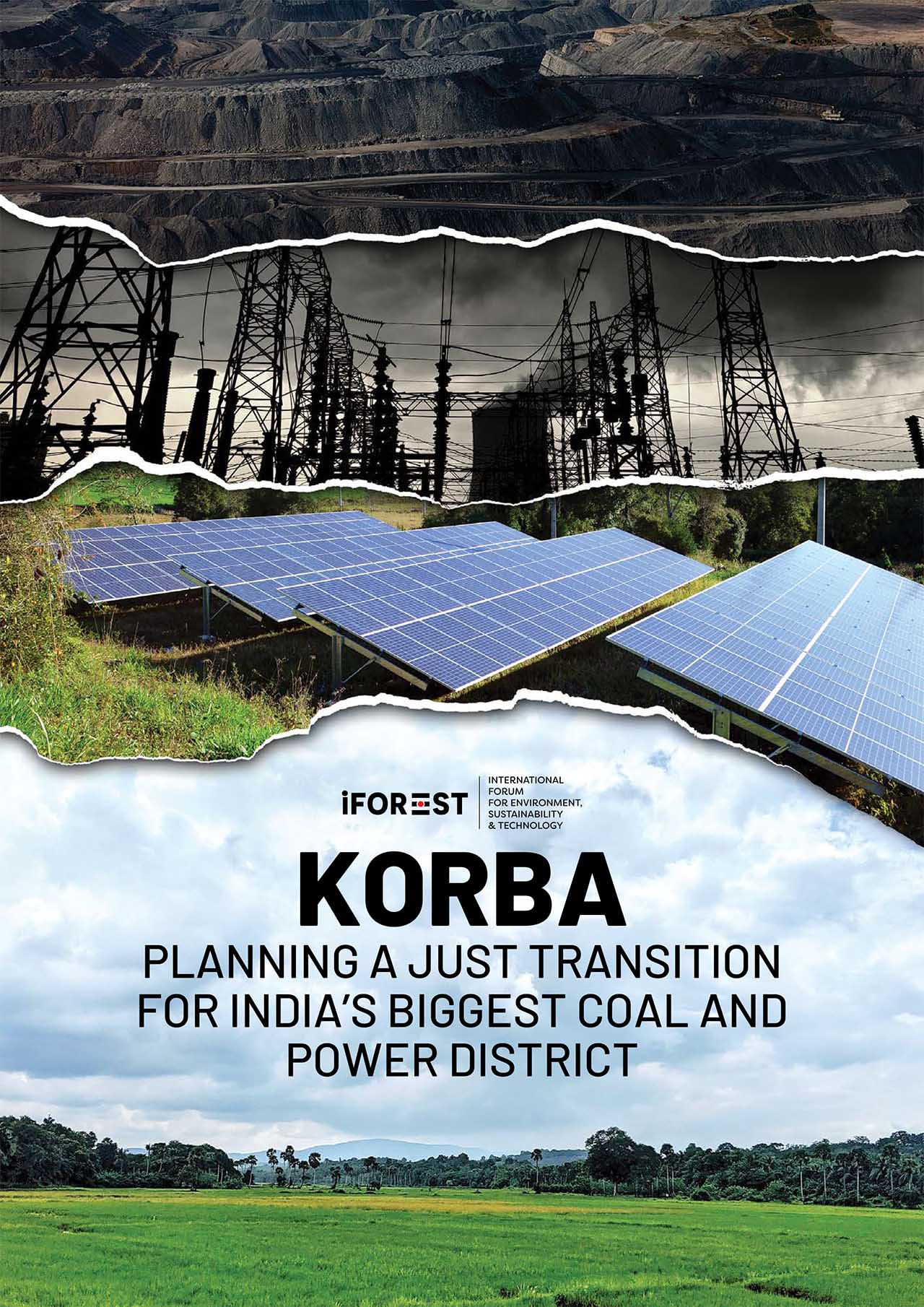
Korba: Planning a Just Transition for India's Biggest Coal and Power District
Lorem ipsum dolor sit amet, consectetur adipiscing elit. Ut elit tellus, luctus nec ullamcorper mattis, pulvinar dapibus leo. Lorem ipsum dolor sit amet, consectetur adipiscing elit. Ut elit tellus, luctus nec ullamcorper mattis, pulvinar dapibus leo.
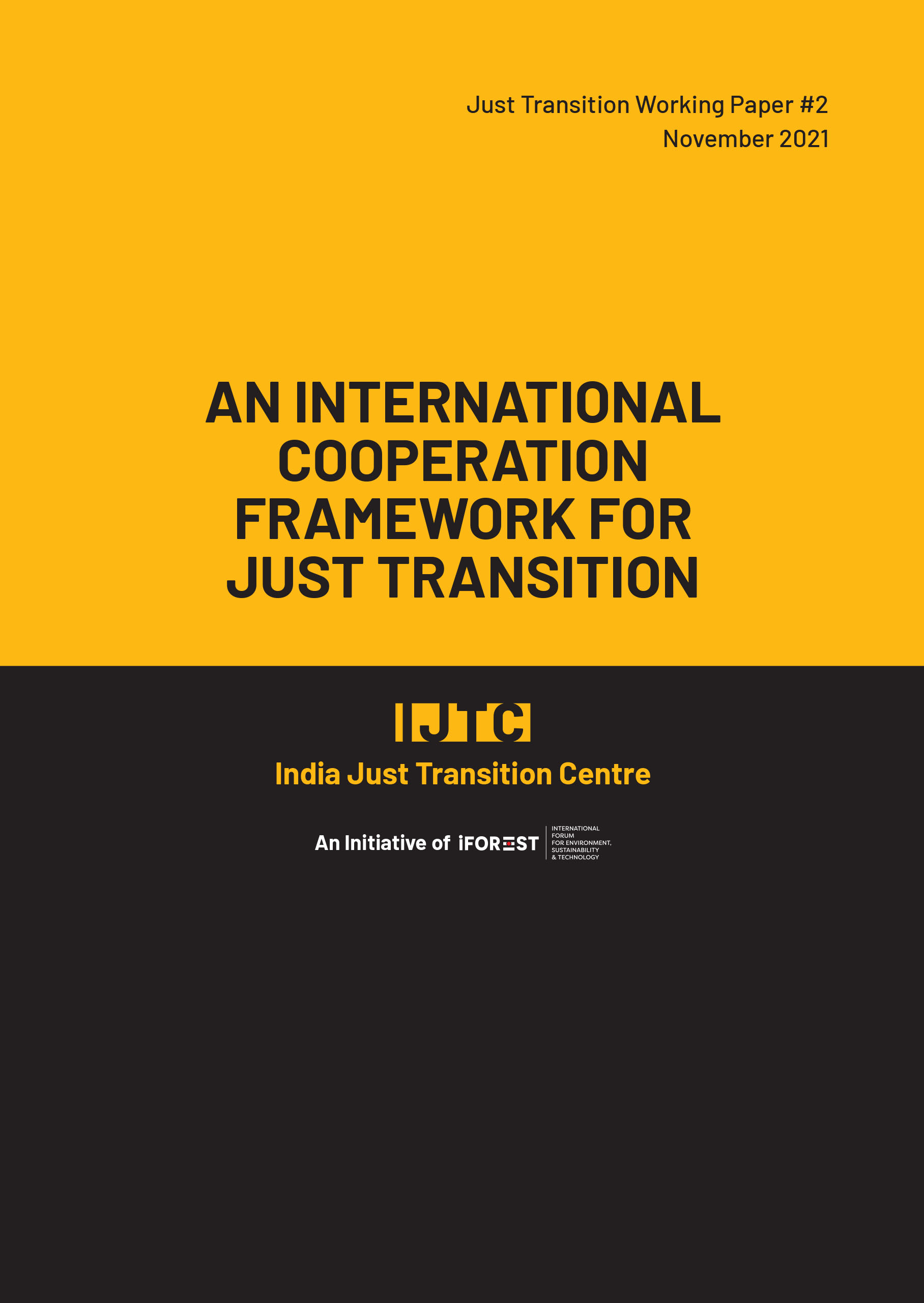
An International Cooperation Framework for Just Transition
- Working Paper
- Energy & Climate Change
- Download
Developing countries require massive financial and technical support to ensure just and equitable phase out of coal under accelerated timelines, aligned with achieving decarbonization goals. The requirement of strengthened support has been brought up on several occasions at the ongoing COP26.
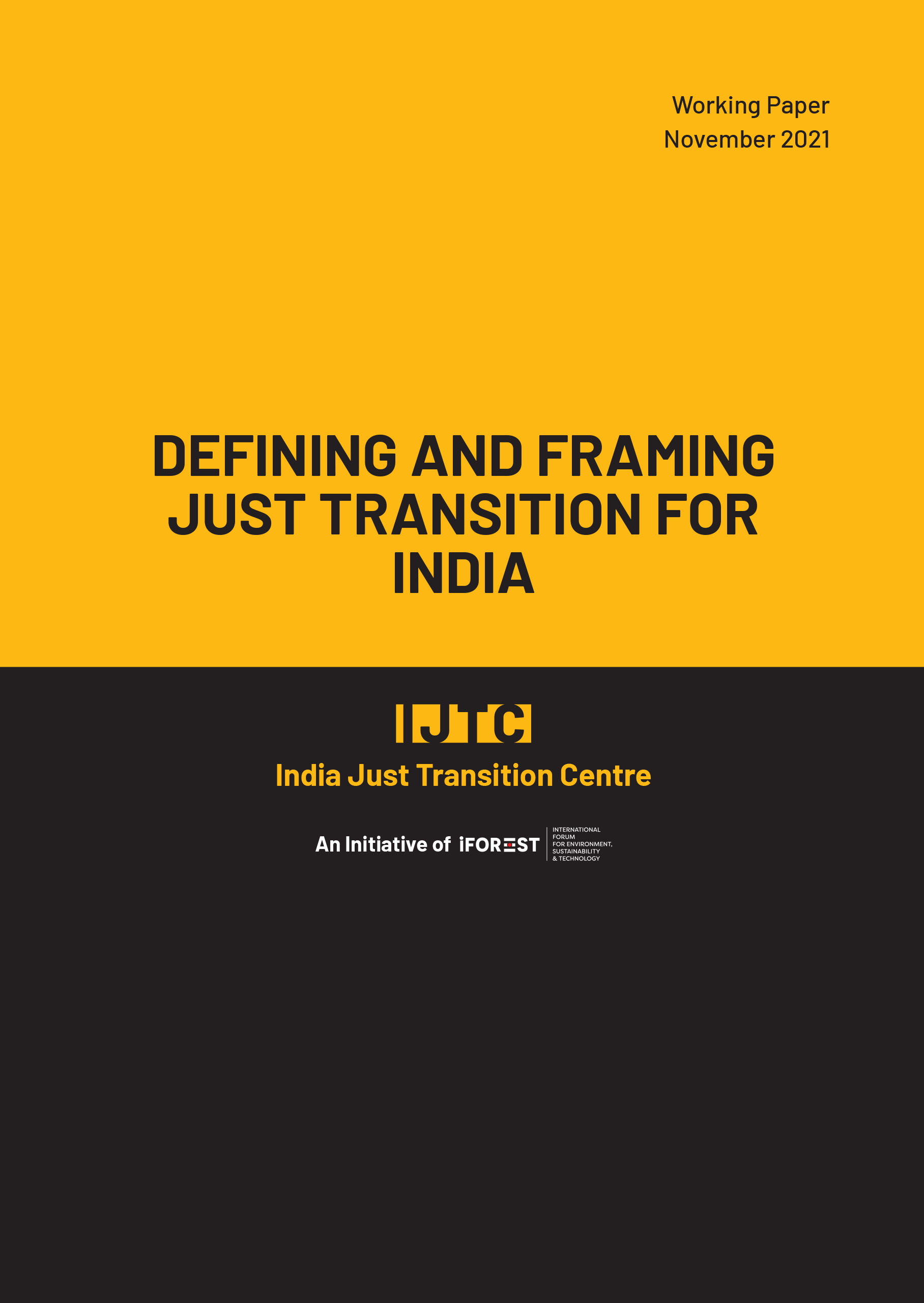
Defining and Framing Just Transition for India
- Working Paper
- Energy & Climate Change
- Download
A precise definition and an appropriate framing of just transition in the context of India’s fossil fuel regions and economy is essential to build policy momentum and public engagement on the issue. This is also important for formulation of relevant policies and just transition plans that are guided by the principles of social and environmental justice, and are designed to achieve net positive social, economic and environmental outcomes.
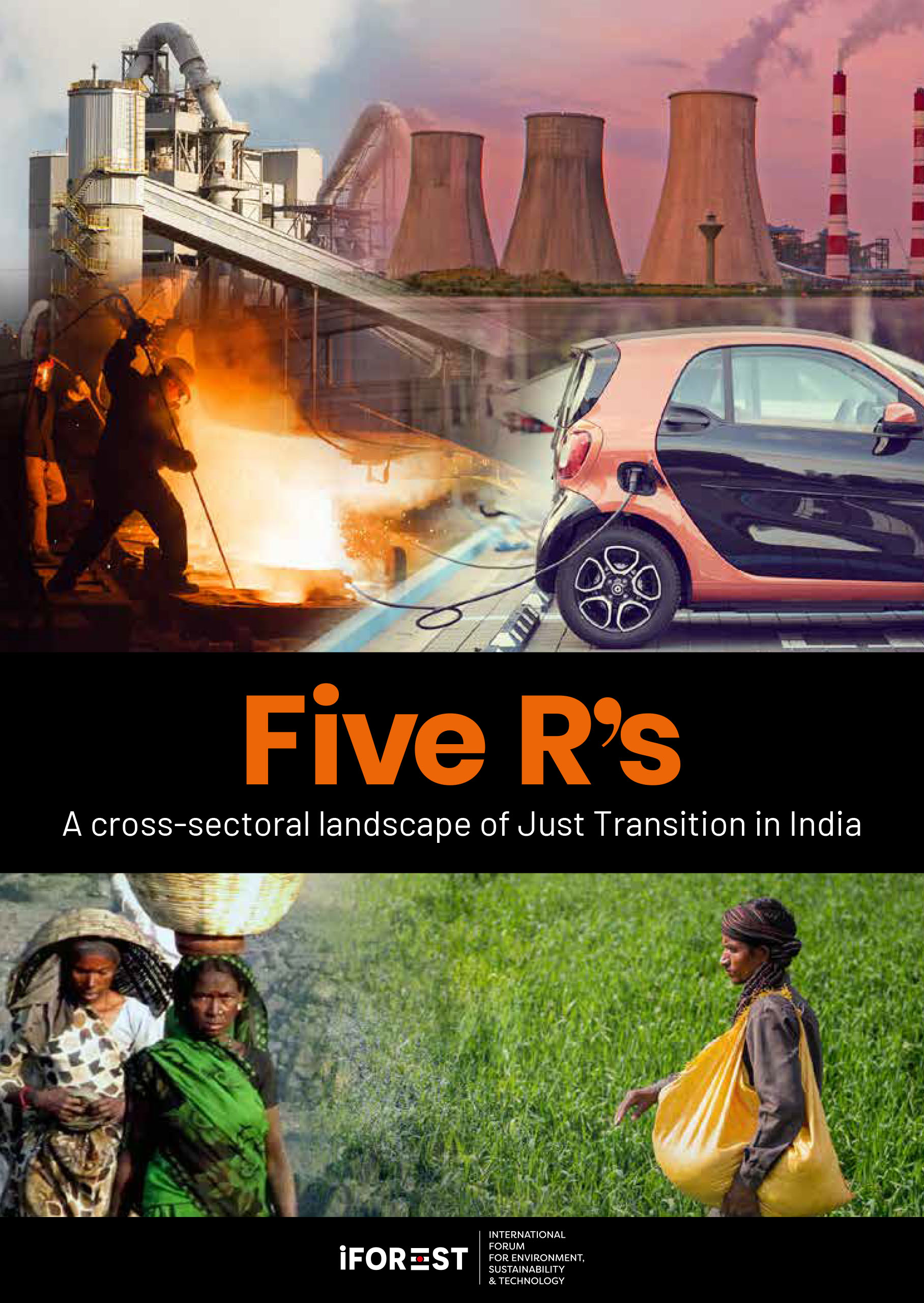
Five R's - A cross-sectoral landscape of Just Transition in India
- Report
- Energy & Climate Change
- Summary
- Report
India’s trajectory for energy transition will determine the policy and planning approach for the just transition. Two recent modelling studies on net-zero emissions pathways for India provide a glimpse of possible trajectories to reduce fossil fuels over the next three to four decades.
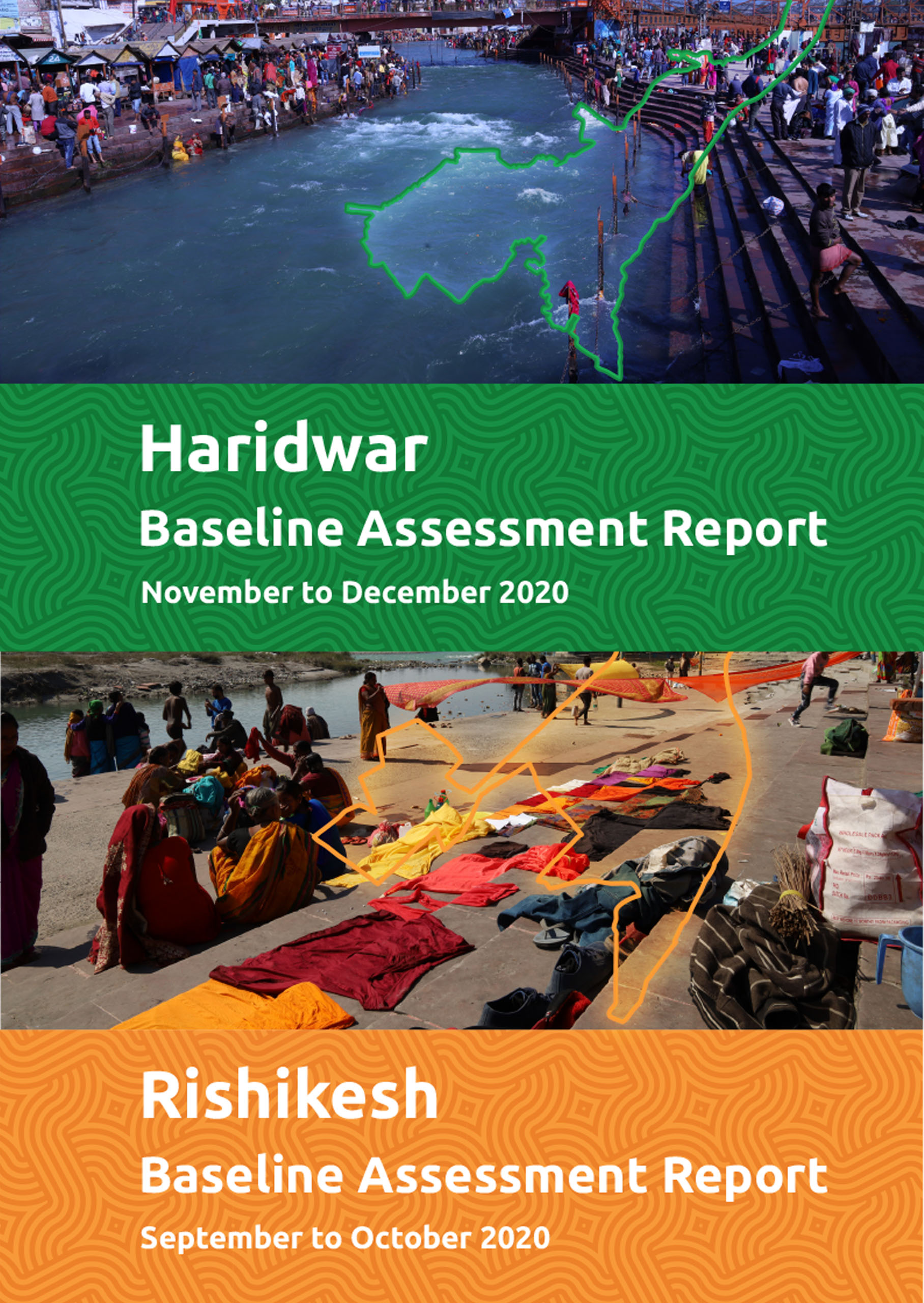
Baseline Assessment Study of Solid and Plastic Waste in Haridwar and Rishikesh
Within project Aviral – Reducing Plastic Waste in the Ganga, plastic waste entering the cities environments is reduced by strengthening an integrative and improved plastic waste management system in the two Ganga cities Haridwar and Rishikesh. The efforts also contribute to achieving the objectives of the flagship programs of the National Mission for Clean Ganga (Namami Gange) and the Clean India Mission (Swachh Bharat Mission). In order to sustainably enhance existing capacities, improve selected elements of the plastic waste value chain, promote innovations and implement awareness activities.
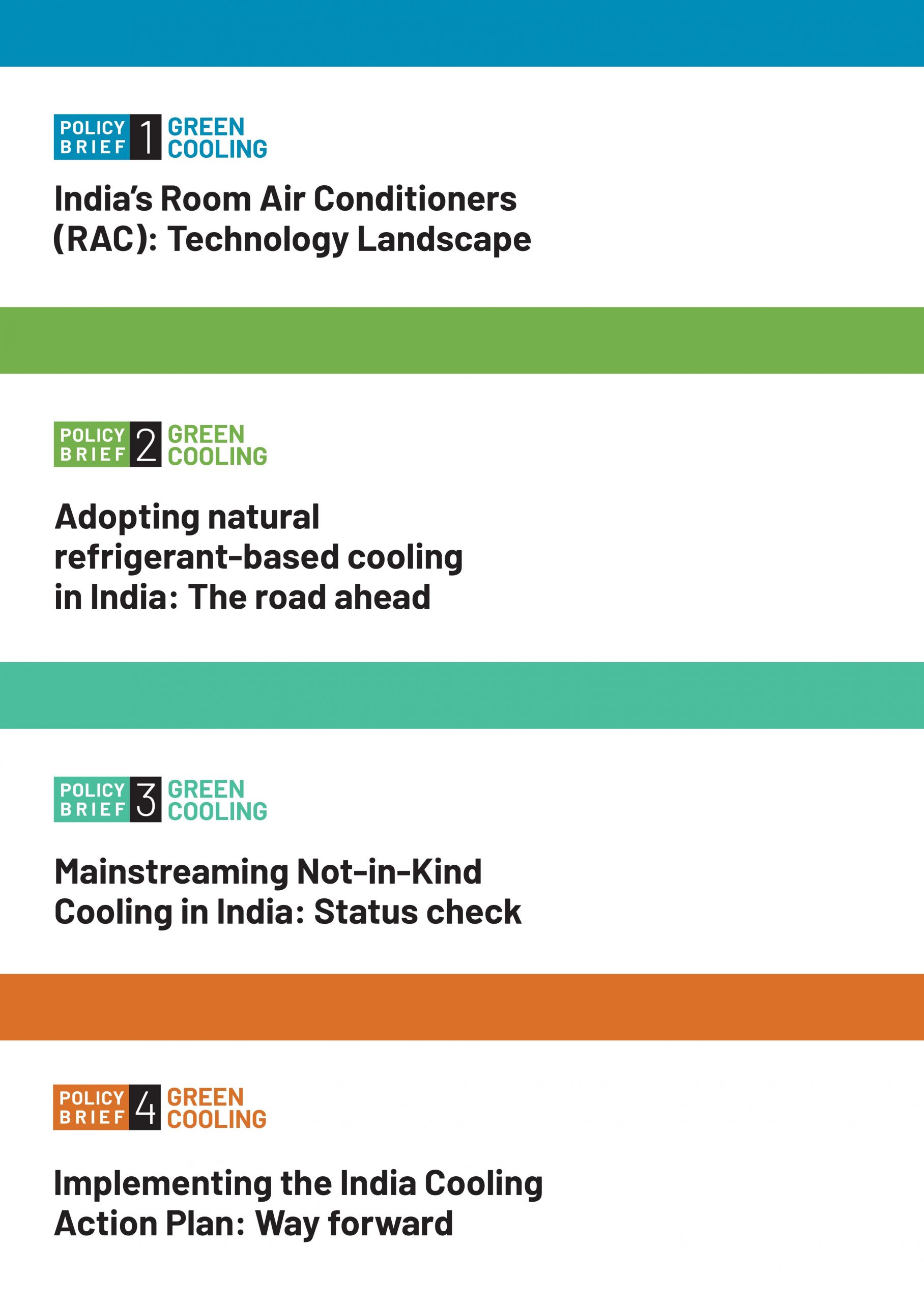
Green Cooling in India
- Policy Briefs
- Energy & Climate Change
- India's Room Air Conditioners (RAC): Technology Landscape
- Download
- Adopting natural refrigerant-based cooling in India: The road ahead
- Download
- Mainstreaming Not-in-Kind cooling in india: Status check
- Download
- Implementing the India cooling Action Plan: Way forward
- Download
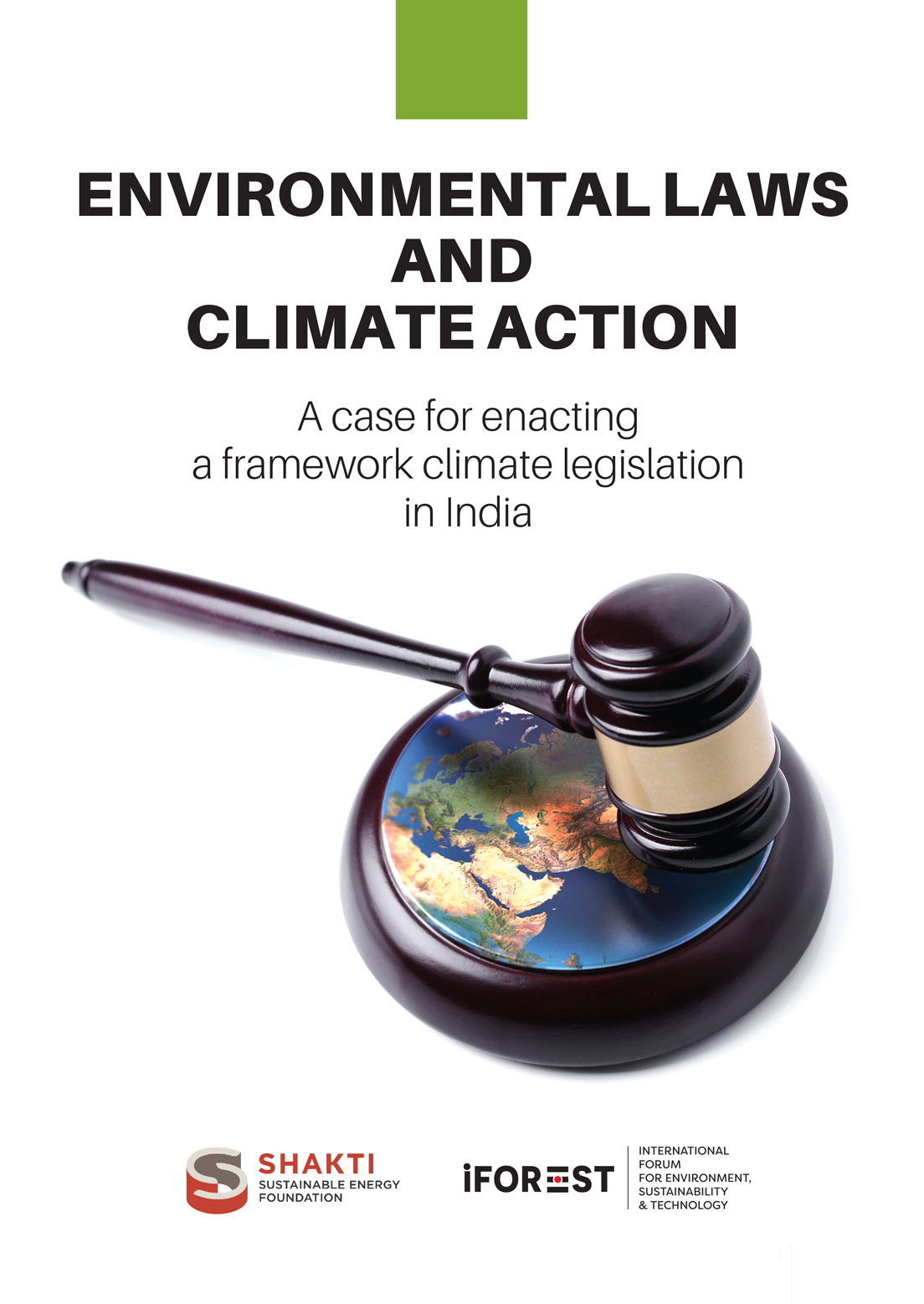
Environmental Laws and Climate Action: A case for enacting a framework climate legislation in India
- Report
- Energy & Climate Change
- Download
There is a growing debate on enacting a ‘framework climate legislation’ to enhance climate change mitigation and adaptation action. International treaties, such as the Paris Agreement, do not have an enforcement mechanism as those found in national laws; the absence of which can undermine climate action. Through a detailed review of India’s environmental laws, climate litigations and framework legislations in various countries, this report explores whether India needs a framework climate legislation, and the scope and contours of it.
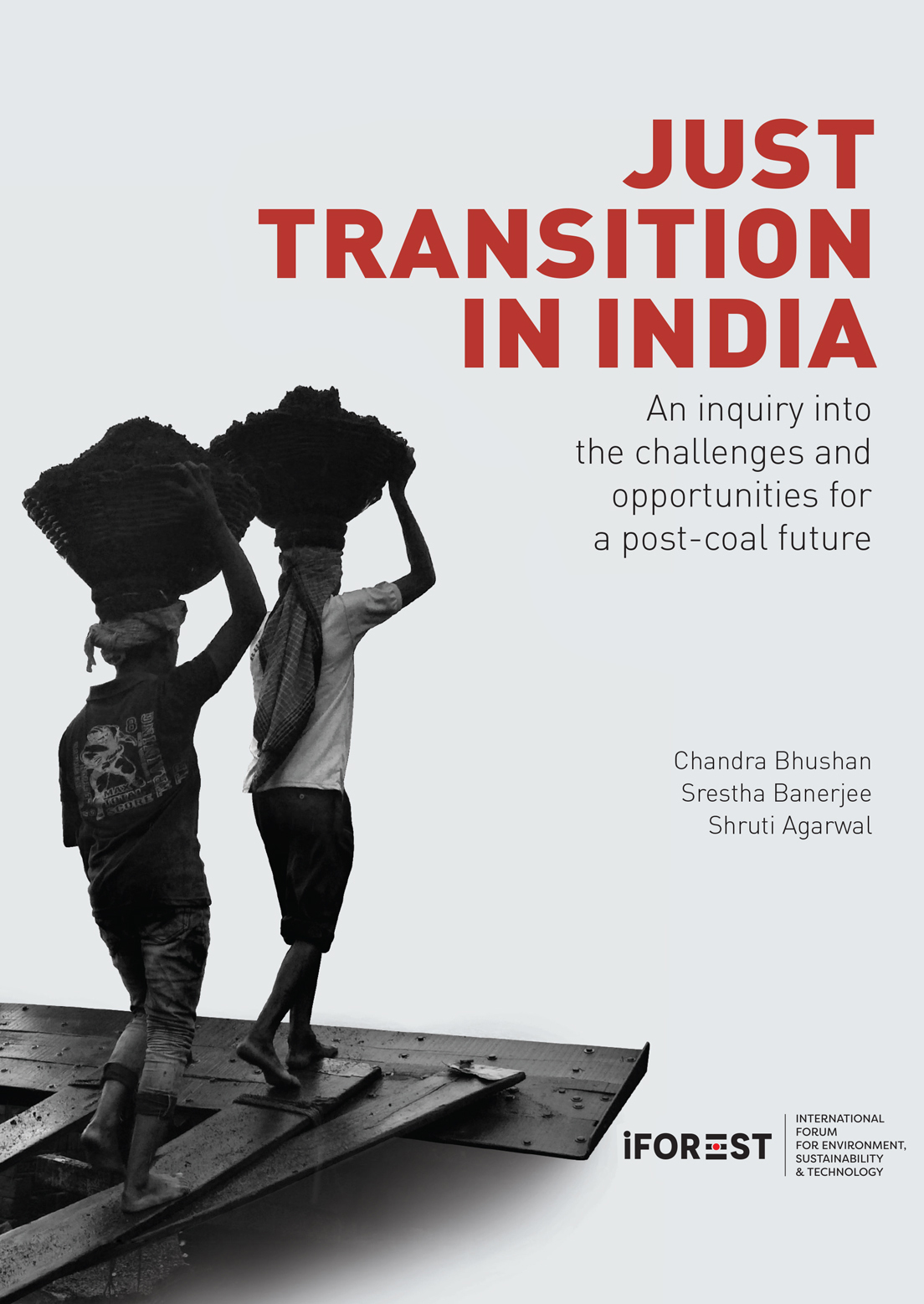
Just Transition in India: An inquiry into the challenges and opportunities of a post-coal future
This book aims to understand what just transition means for India, detailing the risks and opportunities of coal phase-out. It builds on an in-depth research of a top coal mining district of Jharkhand, where many coal mines are already closed. It also proposes what coal mining districts and governments should do to plan for a just transition.
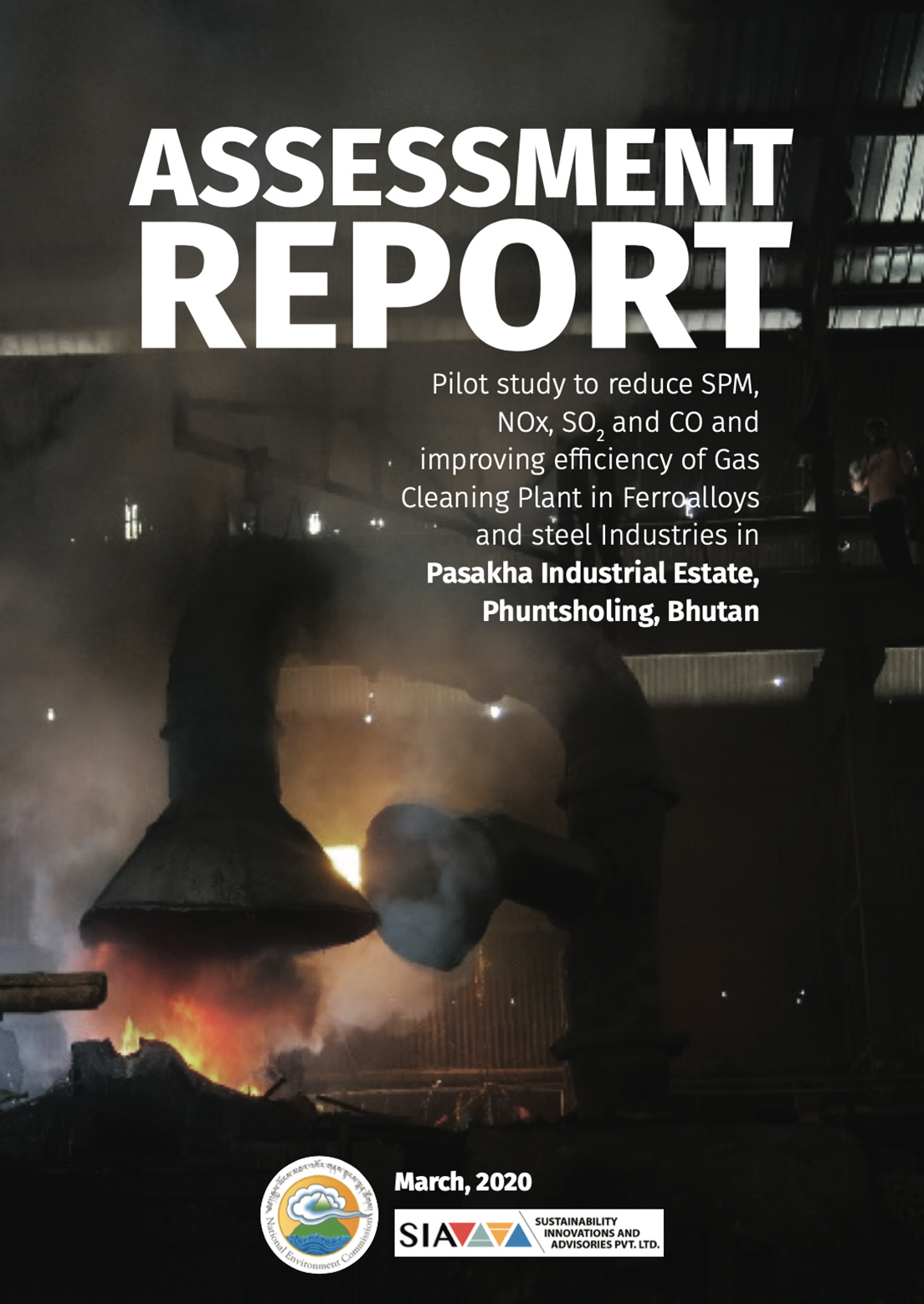
Assessment Report: Pasakha Industrial Estate, Phuntsholing, Bhutan
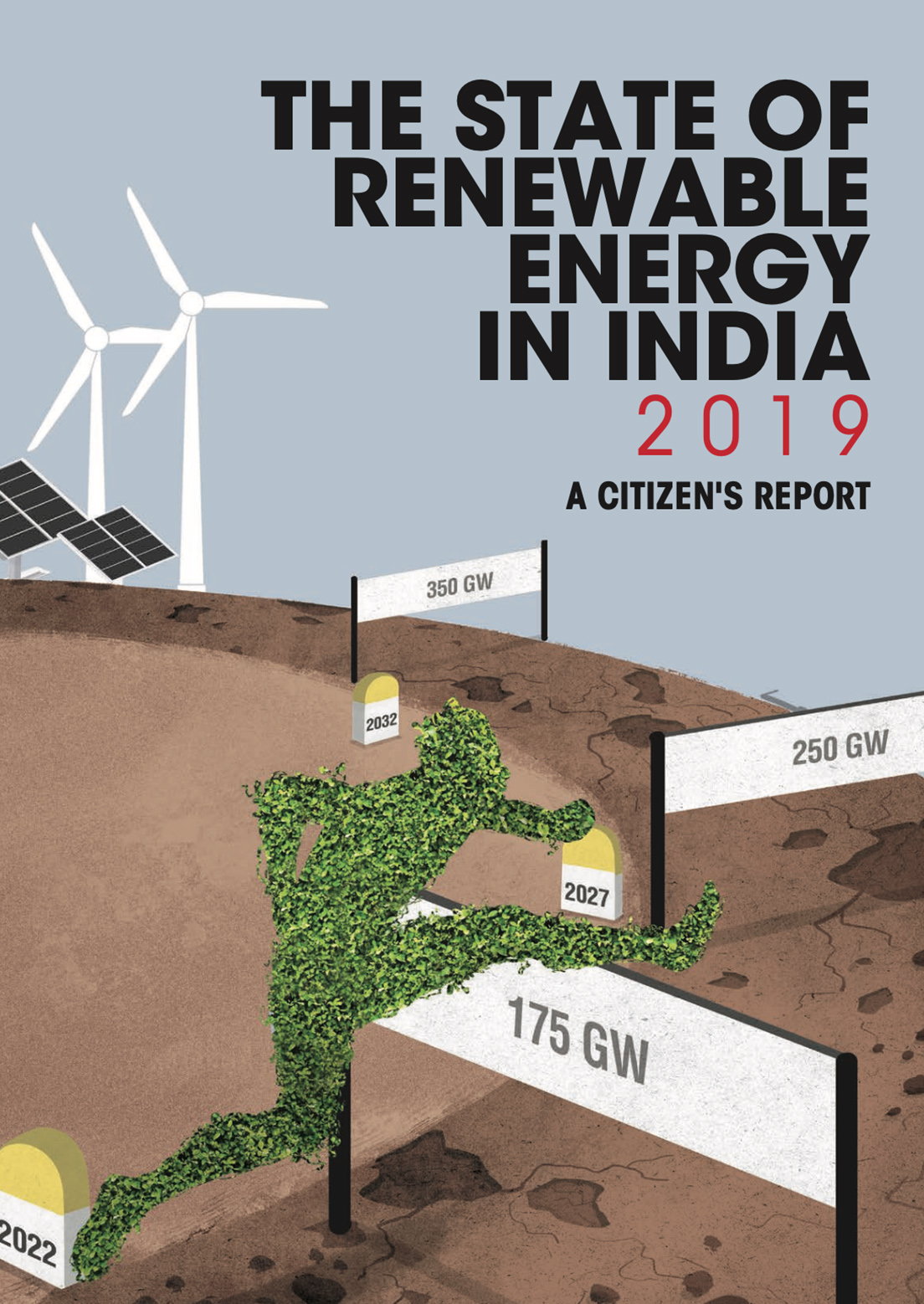
State of Renewable Energy in India: A Citizen's Report, 2019
- Report
- Energy & Climate Change
- Download
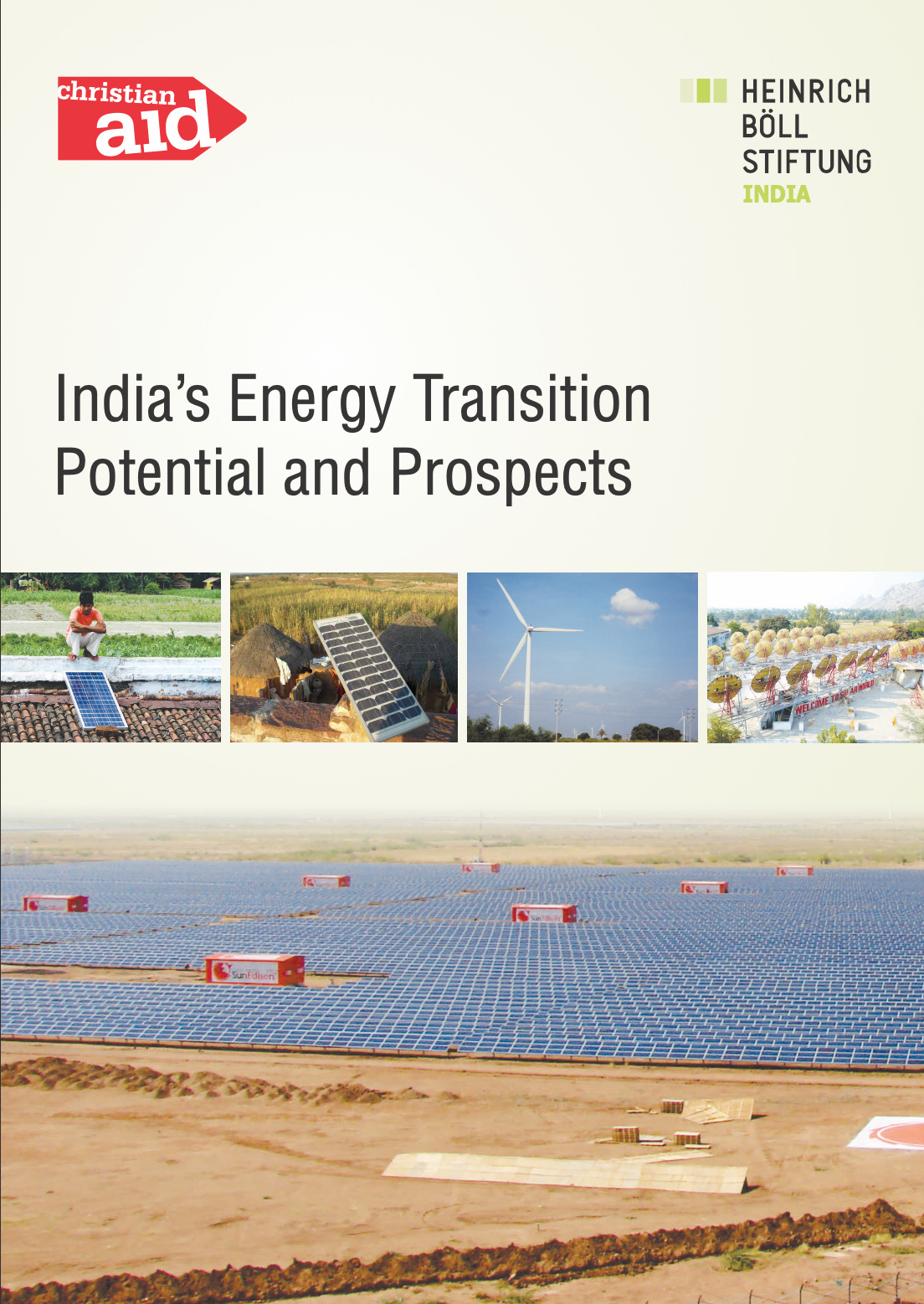
India’s Energy Transition: Potential and Prospects
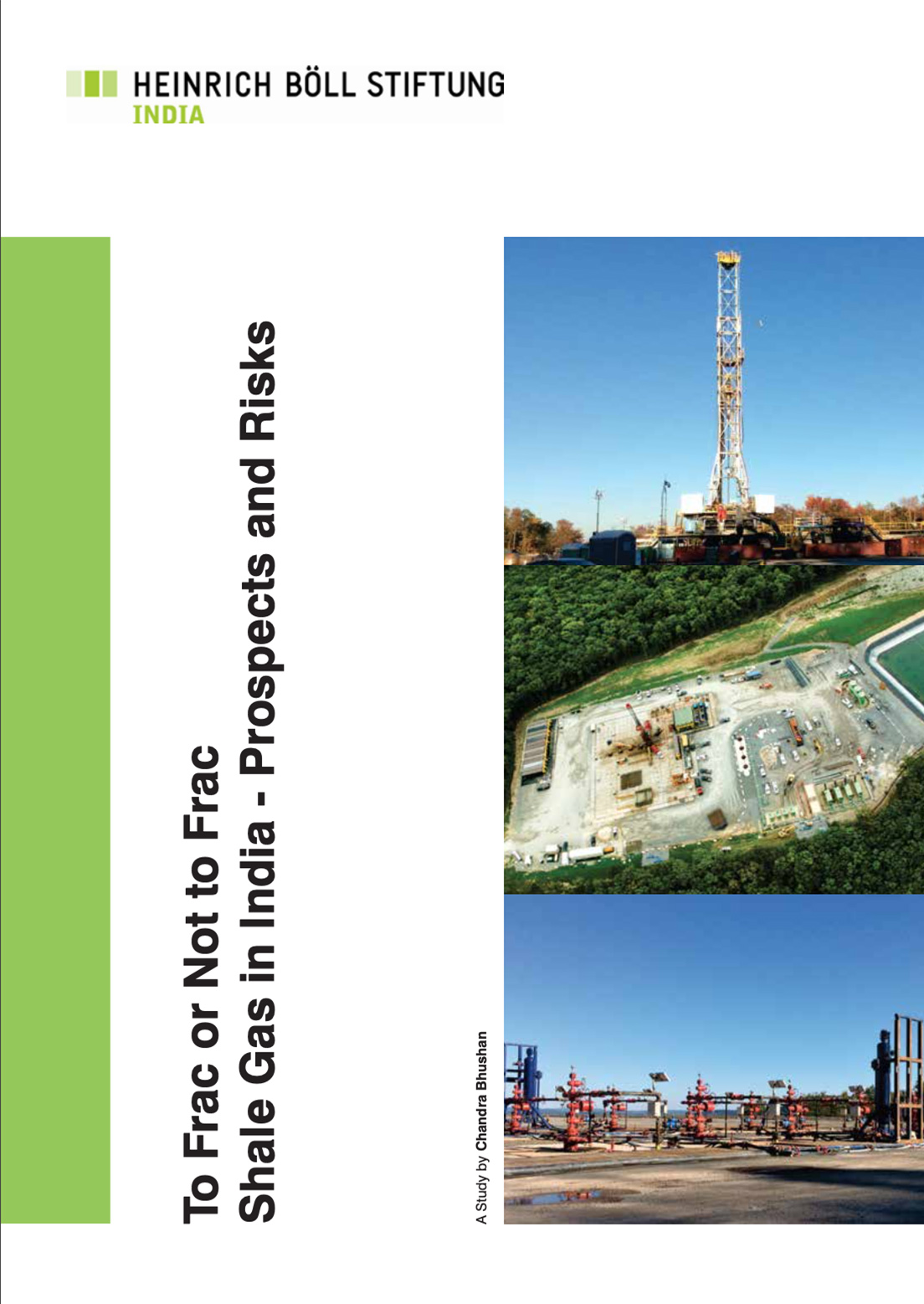
To Frac or Not to Frac: Shale Gas in India
- Report
- Energy & Climate Change
- Download
This report analyses the experience of shale gas development in the U.S. and provides an overview of potential environmental and social impacts and risks that the large-scale exploitation of shale gas would entail in India.
